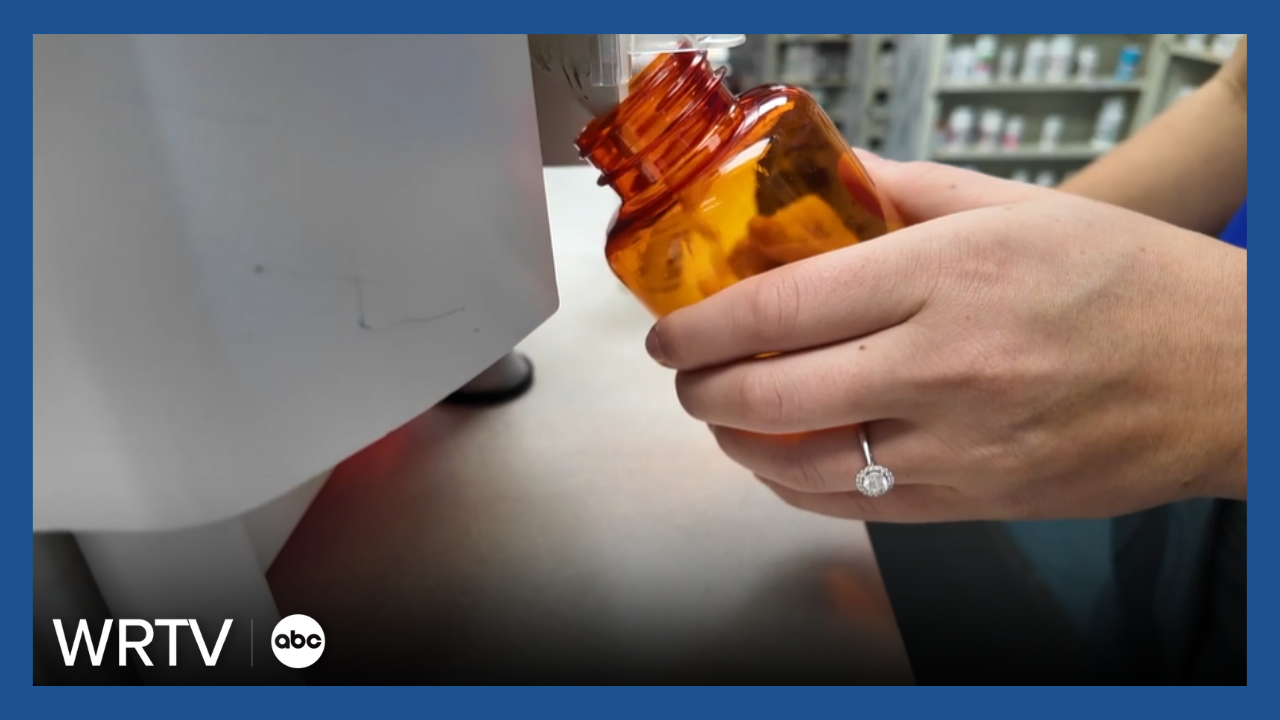LEBANON — The Trump administration threatened a 100% tariff on some imported prescription drugs that was scheduled to take effect Thursday, but a deal Pfizer struck with the administration could provide relief for patients, local pharmacists said.
Drug pricing has been a national issue for decades. The proposed tariffs would apply to certain brand-name medications — including some eye drops — and are intended to push more drug manufacturing to the United States, administration officials have said. A Lebanon pharmacy says the effect of the tariffs could take a while to feel.
Medicine can be life-saving for people all across the country. But those prices... can add up.
"Prices aren't too bad since insurance pays for most of mine,” Mike Cunningham, a Lebanon resident, said. “I think the folks that have to pay for them... have to pay too much. They could be cheaper, I think. "
The administration says driving down prices is the goal of the tariffs, aiming to get more drugs manufactured in America.
"So this generally is supported. I just think in the meantime, we might see some access issues, some pricing changes, and it's hard to know at this time how that's going to be impacting patients and pharmacies in particular,” Kate Riddell, a pharmacist at Parkside Pharmacy in Lebanon, said.
Riddell said the tariffs would apply only to brand-name medications — about 10% of the drugs the pharmacy receives — but some medicines prescribed to treat certain cancers and HIV may be affected.

"A lot of those are still brand-name and do not have generic options,” Riddell said.
“And are those not manufactured in the U.S.?” asked WRTV’s Meredith Hackler.
“Some are. Some aren't,” added Riddell. “It's a little nuanced, especially since some of those medications aren't used as much. So some of those HIV and cancer I could there being affects from these tariffs. "
Because Parkside is an independent pharmacy, Riddell said she is unsure how the tariffs will affect the store. Independent pharmacies typically have less buying power than big-box retailers, and it is unclear who would pick up any extra cost.
"If we are asked to absorb those costs as a pharmacy without higher reimbursement, that is unsustainable for our pharmacies, and it's going to be very hard for us to continue to stay open, which will increase access problems in a different way,” Riddell said.
As for customers like Cunningham, he said he is unsure what to think.
"It could go either way, actually, but it could always be cheaper,” Cunningham said.
Parkside Pharmacy fills about 300 prescriptions a day. The pharmacist warned that if customers end up absorbing the cost, it could drive up insurance premiums.





